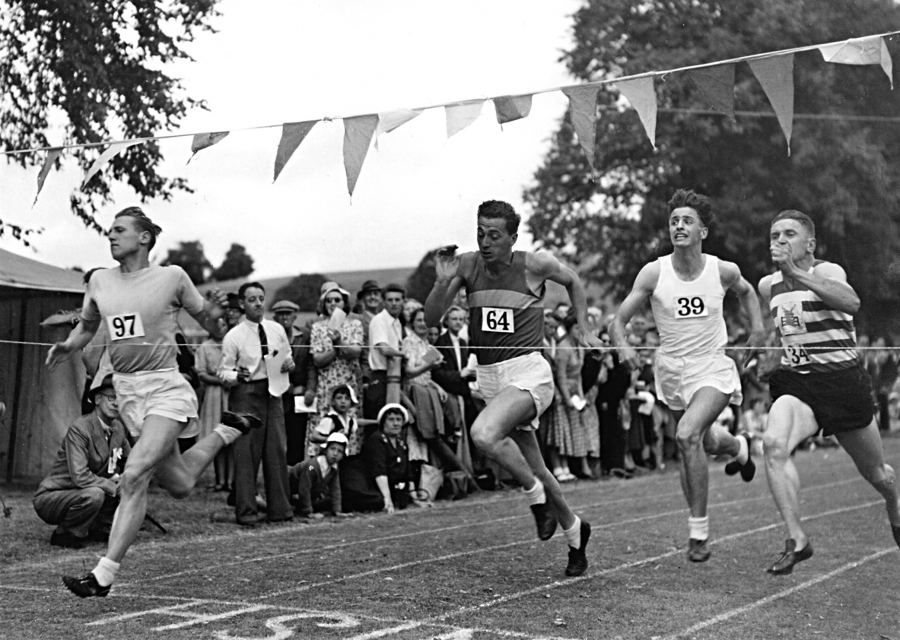Few in the international sporting community would pinpoint the UK’s West Midlands, the host region of the SportAccord World Sport & Business Summit 2024, as the home of the modern Olympic Movement.
After all, the ancient Olympics originated in Olympia before the first modern Games were revived in Athens in 1896, two years after the International Olympic Committee (IOC) was established in Paris. Nowadays, Lausanne’s ‘Olympic Capital’ status is justified by the presence of countless International Federations, while it has also been the home of the IOC since 1915.
However, when SportAccord lands at Birmingham’s International Convention Centre from April 7-11, 2024, the sporting world will actually be congregating in a region that played a vital – if somewhat lesser-known – role in the rebirth of Olympism in the late 19th century.
Much Wenlock
The picturesque market town of Much Wenlock, some 30 miles west of Birmingham, was the home of Dr William Penny Brookes.
This man of many talents had a career that spanned medicine, law, education, botany and business, and in the mid-1800s, he turned his attention to establishing the Wenlock Olympian Society Annual Games. Athletic pursuits and cricket, as well as a version of football, were among the first sports to feature in the early years of the Games – although wheelbarrow racing sadly failed to survive as a mainstream attraction!
After launching in 1850, the Games soon grew in popularity. By the end of the decade, competitors were travelling to the West Midlands from as far afield as London and Liverpool, and the event morphed into the Shropshire Olympian Games in 1861. Five years later, Brookes was a key figure behind the first National Olympian Games, which attracted more than 10,000 spectators to Crystal Palace in London.
At the same time, Brookes was starting to nurture international relations with like-minded individuals and organisations who shared his vision for sport as a spectacle to bring people together.
In 1859, Brookes donated the princely sum of £10 to the organisers of the inaugural Zappas Olympics in Athens, a multi-sport event funded by Greek businessman Evangelis Zappas. The ‘Wenlock prize’ was subsequently awarded to the winner of the ‘Long’ or ‘Sevenfold’ race.
De Coubertin’s inspiration
In 1890, Pierre de Coubertin, then a 27-year-old organiser of the International Congress on Physical Education, was invited to Much Wenlock. The Wenlock Olympian Society staged an edition of its Games to mark the special guest’s arrival.
According to legend, it was following meetings between Brookes and De Coubertin at The Raven Hotel in the town that the Frenchman decided to press ahead with plans to stage an Olympic Games.
De Coubertin was certainly inspired by what he experienced, when he wrote at the time: “If the Olympic Games that Modern Greece has not yet been able to revive still survives there today, it is due, not to a Greek, but to Dr W P Brookes.”
Four years after his visit, De Coubertin co-founded the IOC with Demetrios Vikelas. Indeed, Brookes was invited to the inaugural Olympic Congress in Paris in 1894 as an honorary delegate, but was unable to attend due to ill health.
Brookes died in 1895, a few months before the first edition of the modern Olympic Games was held in Athens. However, his crucial role – and that of the West Midlands – in the rebirth of the modern Olympic Movement is beyond doubt.
In 1994, more than a century on from De Coubertin’s trip, then IOC President Juan-Antonio Samaranch visited Brookes’ grave in Much Wenlock and said: “I have come to pay tribute and homage to Dr Brookes, who really was the founder of the Olympic Games.”
The Much Wenlock Games are still staged every July and, fittingly, Wenlock was the name of the official mascot for the London 2012 Olympic Games, bringing the town’s unique sporting story to a global audience.

Olympic principles
The pioneering attributes that helped to pave the way for the emergence of the modern Olympic Games are part of the region’s DNA.
The West Midlands served as the cradle of the world’s first industrial revolution, emboldening a creative mindset that has been showcased repeatedly in a sporting context over the years. After all, this region is home to four of the English Football League’s 12 founder member clubs, and is where sports such as lawn tennis and rugby union were created.
In recent decades, the West Midlands has reinvented itself from an industrial heartland into a leading business, cultural and major events destination, staging the likes of the World Athletics Indoor Championships, the Ryder Cup and the Artistic Gymnastics World Championships.
The region’s innovative spirit was illustrated vividly during the Birmingham 2022 Commonwealth Games, which attracted over five million people to the city and saw 1.5 billion people tune in worldwide. This celebratory festival echoed the efforts of Dr Brookes more than 170 years earlier – but it is striking how many ideas from those early Games in Much Wenlock survive to this day.
For example, each event would begin with a parade of flagbearers through the town. Furthermore, athletes of all backgrounds were allowed to compete after Brookes, who was director of the Wenlock Railway Company, insisted that working class participants could travel to the town for free. This approach, which was highly controversial at the time, showed how sport can break down barriers – an Olympic principle that survives to this day.
From humble beginnings, this tiny corner of the West Midlands has unquestionably played a huge role in the growth of Olympism. It is therefore apt that the Olympic Movement, International Federations and sports industry leaders, colleagues and friends will gather for SportAccord 2024 in a region that is steeped in unlikely sporting history.




